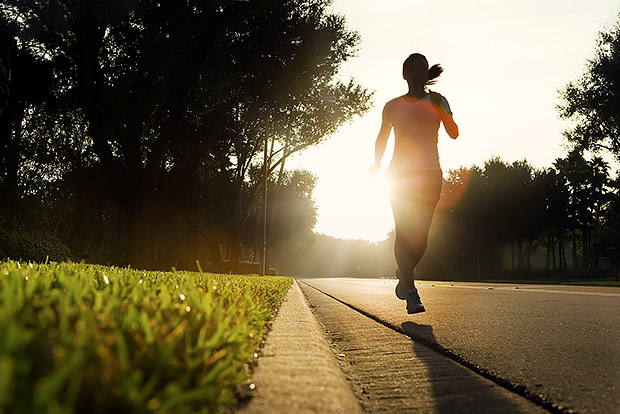
The time of day you choose to exercise may be as important as the fitness activity itself. Research shows both pros and cons for morning and afternoon exercise, but finding your ideal time of day is the key to sticking with it. Work with your natural patterns and identify those positive points that make an exercise time right for you.
Your Best Exercise Time
Being a morning person or a night owl is linked to your circadian rhythm (your 24-hour biological clock). Exercising when your energy level peaks can make it more productive and enjoyable. If your schedule and energy levels don’t match up, don’t worry. Some research has shown that over time, our bodies adapt to an exercise time much as they adapt to waking up at the same time every day.
Morning Exercise
If you work out in the morning you are more likely to stay committed. This is because you get your exercise done before other tasks steal your attention later in the day. Morning exercise may also help with weight control. In one study, men who did vigorous morning workouts before breakfast saw no weight gain despite eating a high-calorie, high-fat diet. Another study shows that morning workouts may help lower blood pressure throughout the day and improve sleep quality at night when compared to lunchtime and evening workouts.
One problem with early workouts is that body temperature is lower in the morning which may result in less power and poorer performance. Experts also warn that morning exercise can put you at risk for injury because muscles are not warmed and ready for work. You can reduce your risk by adding extra time to your warm-up.
Lunchtime Exercise
There are fewer research results comparing lunchtime workouts to other times of day, but remember that the best workout is the one you do. Don't let support for morning or evening exercise lessen the benefits of a quick trip to the gym or a jog around the city on your lunch break. The lunch hour may be the perfect (or only) time you can squeeze in 30 minutes of physical activity.
Afternoon and Evening Exercise
Some researchers believe that late afternoon and early evening workouts are most effective because both body temperature and hormone levels peak during this time. These factors give you more power to push through hard workouts.
The problem with saving exercise for later in the day is that it's easy for schedule changes to get in the way. If you find you always have to cancel your evening workout plans, try a different time of day until you find one you can commit to.
Late Night Exercise
Exercise causes an increase in body temperature and blood pressure which could result in poor sleep when performed too closely to bedtime. If you work nights, this exercise time may be right for you. Otherwise, the benefit of the exercise may not outweigh the loss of sleep quality.
Be Flexible
Scheduling exercise at the same time every day can help you stick with it, but be flexible. Try out an exercise time for a week or two, switch to another time, and compare how you feel during your workouts. You may be fighting fatigue in the mornings and won’t realize how great you feel during evening workouts until you try them.
The time of day you exercise may change over the years. Work and school schedules, families, and age can all influence when you can commit to workouts and when you feel the most energy.



 5 Ways to Burn 300 Calories this Weekend
5 Ways to Burn 300 Calories this Weekend
 The Best Home and Garden Chores for Burning Calories
The Best Home and Garden Chores for Burning Calories
 5 Tips for Making Exercise a Habit
5 Tips for Making Exercise a Habit
 Best Ways to Stay Safe during Exercise in Hot Weather
Best Ways to Stay Safe during Exercise in Hot Weather
 11 Tips for Exercise Motivation
11 Tips for Exercise Motivation
 Signs You Need to Increase Exercise Intensity
Signs You Need to Increase Exercise Intensity
 Common Exercise Myths
Common Exercise Myths
 How to Gradually Increase Physical Activity
How to Gradually Increase Physical Activity

 Pinterest
Pinterest RSS Feed
RSS Feed